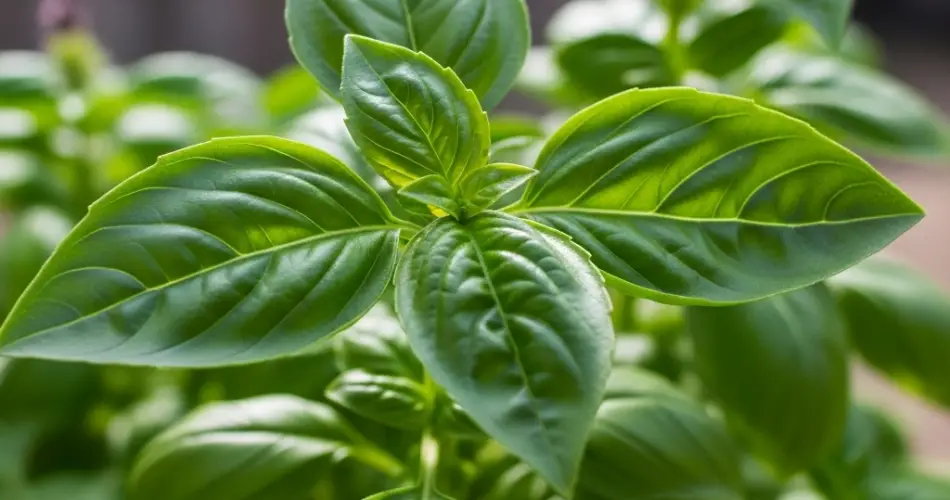Basil is one of the most beloved herbs in home gardens, and for good reason—it’s fragrant, flavorful, and relatively easy to grow. However, like any plant, basil thrives best when given the right nutrients. If you want to grow lush, aromatic basil without using chemical fertilizers, you’ll be glad to know that your kitchen scraps can serve as a powerful, organic alternative.
Turning kitchen waste into natural fertilizer not only saves money but also reduces household waste and enriches the soil. Let’s explore how you can nourish your basil plants using simple materials you already have at home.
Why Basil Needs Fertilizer
Basil is a fast-growing herb that requires regular feeding to stay productive. It needs nitrogen for leafy growth, phosphorus for strong roots, and potassium for overall plant health. Without proper nutrients, basil leaves may turn pale, growth may slow, and the plant could become more susceptible to pests or diseases.
Organic fertilizers made from kitchen scraps offer a balanced way to feed basil while improving soil health naturally. These fertilizers release nutrients slowly, encouraging healthy, sustained growth.
Best Kitchen Scraps for Fertilizing Basil
Here are some of the most effective kitchen scraps you can use to make organic fertilizer for basil:
1. Banana Peels
Banana peels are rich in potassium and phosphorus, both of which promote root development and flower production. While basil is not grown for its flowers, potassium strengthens the plant’s overall resistance to stress, helping it stay robust in hot or windy conditions.
How to use:
-
Chop banana peels into small pieces and bury them a few inches into the soil around your basil plant.
-
Alternatively, soak chopped peels in water for 2–3 days and use the liquid as a nutrient-rich tea for watering.
2. Used Coffee Grounds
Coffee grounds contain nitrogen, which is essential for lush, green basil leaves. They also improve soil texture and help with moisture retention.
How to use:
-
Sprinkle used (and dried) coffee grounds around the base of your basil plant.
-
Mix them into compost for a more balanced blend.
Avoid using too much at once, as coffee grounds can increase acidity. A light layer once every couple of weeks is sufficient.
3. Crushed Eggshells
Eggshells are an excellent source of calcium, which helps strengthen plant cell walls. While basil doesn’t demand high calcium levels, a small boost can improve its overall health, especially in container-grown plants.
How to use:
-
Rinse and crush eggshells into small pieces.
-
Mix into the top layer of soil or add to compost.
Crushed eggshells also help deter pests like slugs.
4. Vegetable Scraps
Peels, stems, and trimmings from carrots, lettuce, cucumbers, and other vegetables are rich in nutrients. These can be composted to create a balanced, slow-release fertilizer for basil.
How to use:
-
Start a small compost bin with kitchen scraps and yard waste.
-
After a few weeks, when the compost has broken down into dark, crumbly material, add it to the base of your basil plants.
If you don’t have a compost pile, consider blending vegetable scraps with water to make a “compost smoothie” and pour it around the base of the plant. Use only fresh, non-oily vegetable waste.
Making a Simple Organic Liquid Fertilizer
You can create a DIY liquid fertilizer—also called compost tea—using a mix of kitchen scraps. This is especially useful for container basil plants that need more frequent feeding.
Instructions:
-
Fill a container halfway with chopped kitchen scraps (banana peels, lettuce leaves, coffee grounds, etc.).
-
Add water to cover the scraps completely.
-
Let it sit for 3–5 days, stirring occasionally.
-
Strain the liquid and dilute it with water in a 1:2 ratio (1 part fertilizer to 2 parts water).
-
Water your basil plant with the solution every two weeks.
This gentle fertilizer helps boost growth without overwhelming the plant.
Tips for Using Kitchen Scrap Fertilizers Safely
-
Avoid meat, dairy, or oily foods, as these can attract pests and create unpleasant odors.
-
Use only raw or cooked plant-based scraps with no salt, seasoning, or sauces.
-
Apply in moderation. Overfeeding with rich fertilizers can cause leggy growth or nutrient imbalances.
-
Rotate between different scraps to provide a broader range of nutrients.
Final Thoughts
Feeding basil with organic kitchen scraps is a simple, sustainable, and effective way to grow healthier herbs at home. With ingredients you might otherwise throw away—like banana peels, eggshells, and coffee grounds—you can craft nutrient-rich fertilizers that nourish your plants naturally.
Whether you’re growing basil in containers on a windowsill or in garden beds outdoors, regular feeding with homemade organic fertilizers will lead to fuller plants, more flavorful leaves, and a reduced need for store-bought solutions. Embrace the power of kitchen waste and turn it into green gold for your herb garden.



